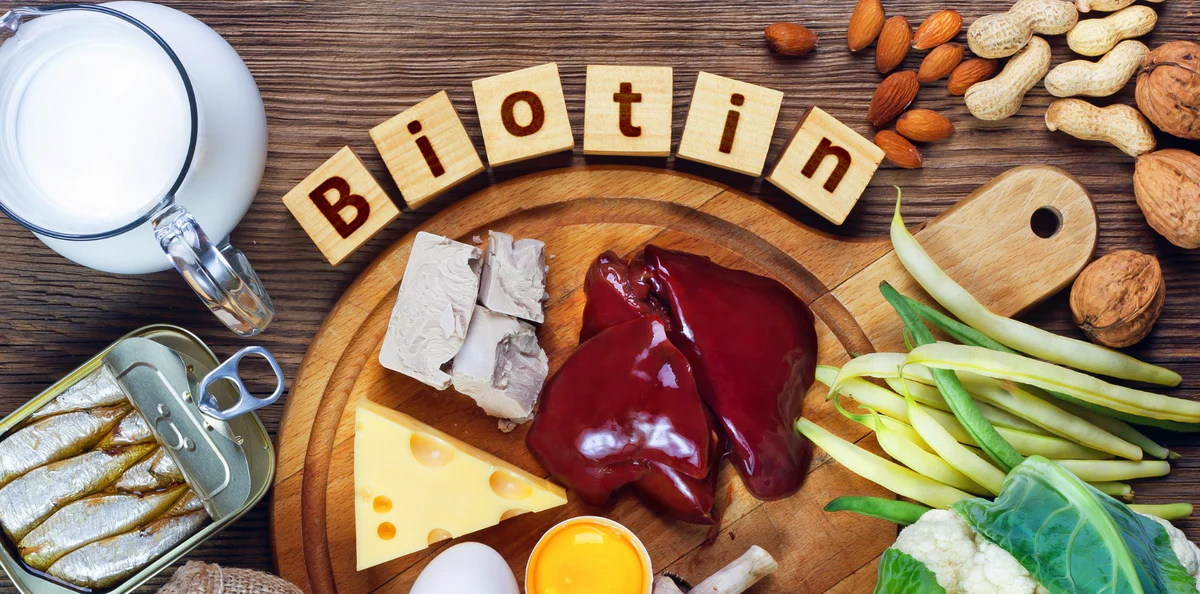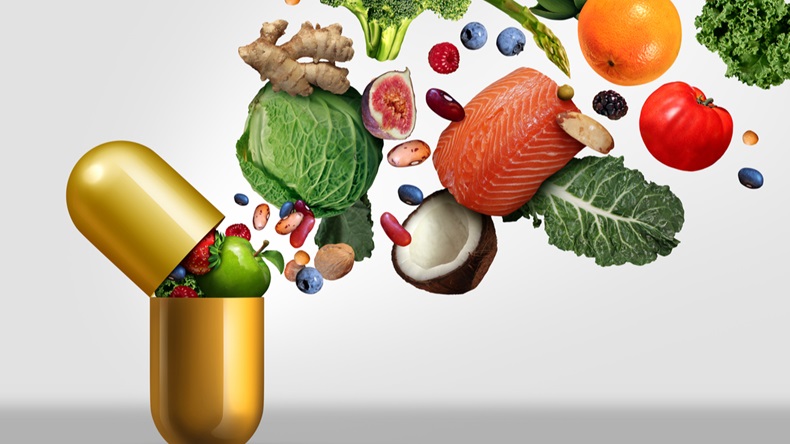Biotin, also known as B7, is a component of the B complex group of vitamins. It is an essential micronutrient for our body to function properly. Biotin in your food intake can transform proteins, fats and carbohydrates absorbed from food into glucose to produce energy. Biotin, also called vitamin H, is a water-soluble vitamin. Therefore, your body usually does not store it. Therefore, consume it regularly to maintain an adequate Level.
Health benefits of biotin

Take a look at the many benefits of biotin:
Biotin foods play a crucial role in the nutrition of the eyes, hair, skin, nails and liver. For people with brittle nails, a daily intake of biotin can help prevent nail breakage or splitting. The recommended dietary intake of biotin only increases with age.
Your body uses biotin to regulate your genes and help your cells communicate.
The nutrient B7 plays a central role in the regulation of blood sugar levels.
It can stimulate blood flow in the heart, increase high-density lipoproteins or good cholesterol and reduce the peril of heart ailment.
Taking biotin is important for women in order to prevent congenital disabilities in the child and to regulate the health of the mother.
Because biotin converts carbohydrates into energy, it can regulate metabolism.
In addition to breaking down the compounds in food, biotin converts folic acid into its active form, which facilitates the production of red blood cells.
Vitamin H is an important source for the efficient functioning of your brain. Biotin helps to form the myelin sheath, which makes it possible to quickly transmit electrical impulses along the nerve cells.
Foods rich in biotin help in the optimal development of white blood cells, which strengthens our immune system.
Vitamin B7 has antibacterial, antiallergic and anti-inflammatory properties that fight inflammation and allergic ailments and repair muscles and tissues.
Symptoms of biotin deficiency

Biotin deficiency can occur due to genetic disorders, intestinal problems and diets, because the limited food intake cannot satisfy the desired amount of vitamins that a body needs or due to medications that prevent your body from consuming the right amount of vitamins. Some possible symptoms of biotin deficiency include:
Hair Loss (Alopecia)
Dry Eyes
Brittle Hair
Red rashes around the nose, eyes, or near the mouth
Depression
Lack of energy and fatigue
Fungal infections
Numbness of the hands and feet
Biotin-rich foods for vegetarians

Here are some vegetarian foods that contain biotin:
Natural sources of biotin are found in sunflower seeds and nuts such as walnuts and peanuts.
Vegetables such as cauliflower, carrots, lettuce, cucumber and cabbage contain biotin. Sweet potatoes contain 2.4 micrograms of this nutrient. Broccoli is a powerhouse of calcium, vitamins A and C, as well as biotin.
Fruits, including watermelon, grapefruit, Banana, strawberries, raspberries and tomatoes, have a healthy biotin content.
One cup of low-fat milk contains 0.3 micrograms of biotin. The content of calcium, protein, phosphorus, vitamin D and potassium in dairy products contributes to the health of teeth and bones.
Biotin-rich foods for non-vegetarians
Here are some biotin-rich foods for non-vegetarians:
Egg yolk has the highest concentration of biotin, because eggs contain 10 micrograms of this nutrient. Vitamins A and d, as well as zinc, are other nutrients contained in eggs.
Saltwater fish such as sardines and salmon are an important source of protein and contain a lot of biotin, making them the least contaminated source.
Offal, especially beef liver, pork liver and pork chops, contain large amounts of biotin.
Eat a balanced diet to get the most out of biotin. Stay active in the Activ Living community to learn more about mindfulness and fitness.



